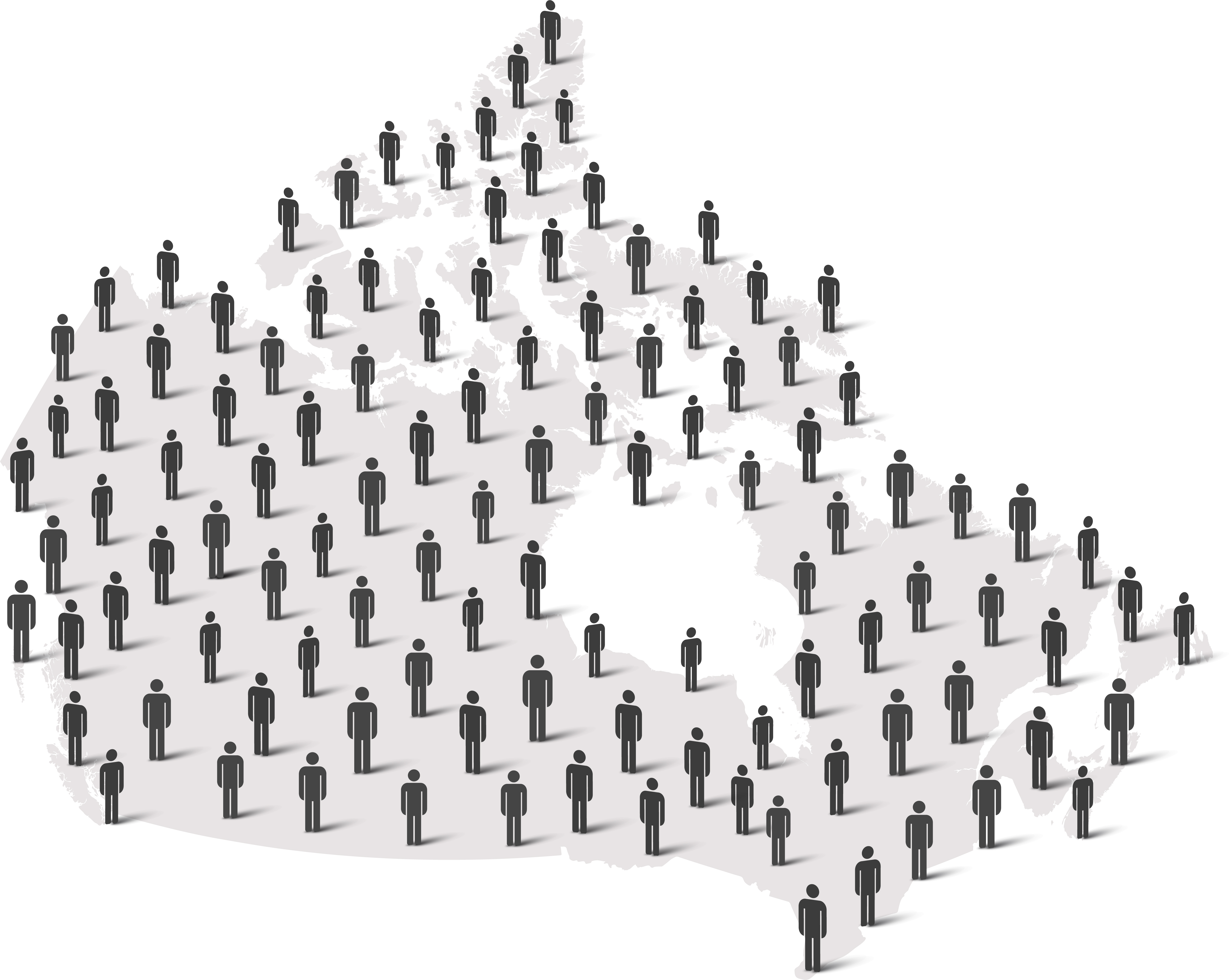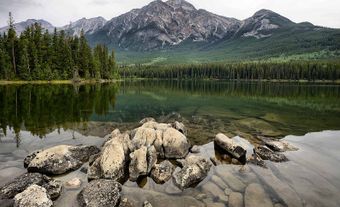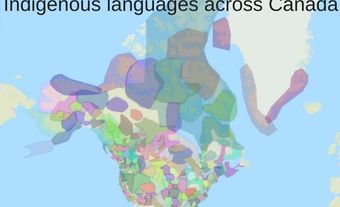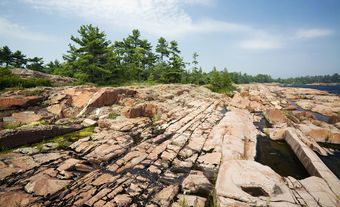Human geography studies the relationships between people and the environments in which they live. Within the field of human geography there are five main areas of study. These areas are economic geography, cultural geography, political geography, urban
geography and environmental geography. In Canada, human geographers might study the status of Indigenous languages or
differences between rural and urban Canadians, among many other topics.

Human geography studies the relationships between people and the environments in which they live.
What is Human Geography?
Human geography studies the relationships between people and the built and natural environments in which they live. It explores how humans have understood, used and altered the surface of the Earth. By comparison, physical geography is concerned primarily with Earth’s natural features.
Topics in human geography are wide-ranging. They include human migration patterns, population and political ecology. They may also include environmental justice, and urban spaces and landscapes. For example, a human geographer may study the internal migration of oil-field workers to northern Alberta from elsewhere in Canada. Alternately, they could study traditional Indigenous land use in southern Saskatchewan. Regardless of the topic, human geography, like all geographies, seeks to understand where things are found on Earth, why they are there, and how they change over time.
The modern study of human geography puts emphasis on five main areas. These areas are economic geography, cultural geography, political geography, urban geography and environmental geography. These specialties provide a broad framework for examining Canada’s human face.
Economic Geography
Economic geography considers how humans make a living. Economic geographers describe the locations of economic activities. They then explain the ways in which these locations are connected to raw materials, goods and people. Economic geographers may explore topics such as agriculture, manufacturing, trade and transportation. They may also study globalization and regional and local economic development.
In Canada, economic geographers unpack and analyze the benefits Canada derives from its natural resources. As of 2019, natural resources accounted for one-ninth of Canada’s gross domestic product, representing 11.3 per cent of the Canadian economy. Economic geographers might express these benefits in terms of employment, business investment and exports. For example, analyzing the shipment of grain through the northern Manitoba port of Churchill would be an exercise in economic geography.
Cultural Geography
Cultural geography studies cultural customs, traditions, developments and issues, and their relationships to the natural world. Some of the cultural phenomena explored include language, religion, different economic and governmental structures, art, music and food. Cultural geography searches to uncover how and/or why people function as they do in the areas in which they live. Since the 1980s, cultural geography has expanded to include multiple themes including feminist, children’s and music geographies. A cultural geographer might ask, “How has the Canadian landscape inspired or influenced regional musical genres?”
Canada is one of the most culturally diverse nations in the world. Canadian cultural geographers research changing family structures, regional identities and the role of religion in the lives of Canadians. They also study immigration patterns, gender identities and the status of Indigenous languages.
Political Geography
Political geography examines the various relationships between politics and physical spaces. Political geographers might study the relationships between physical landforms and political boundaries, disputed territories and regions in conflict, or government responses to environmental issues. They may also examine local policies relating to urban development or Canada’s role in international organizations like the United Nations or the North Atlantic Treaty Organization (NATO). Political geography often reflects current events. Present studies may centre on political violence, Indigenous issues, immigration and human rights, as well as geographies of war and environmental security.
Political geography in Canada and elsewhere now includes the study of digital democracy. Digital democracy is the role of information technology, such as social media and artificial intelligence, in political discourse. Political geographers analyze digital democracy’s effect on Canadian governance at the local, provincial and national level. In particular, they examine how the effects of digital democracy are arranged over a geographic area.
Urban Geography
Urban geographers apply the skills and knowledge of geography to the study of urban areas. They study the design, development and governance of urban areas and attitudes towards urban spaces. They also study issues relating to the identity, experiences and rights of those living in towns and cities. Answers to questions like “Do concepts of identity between urban and rural Canadians differ?” and “Why would Toronto be called a primate city and not Ottawa?” are of interest to urban geographers. In addition, urban geography addresses various challenges concerning modern cities, including topics such as transportation, health care, crime, pollution, education, poverty and labour.
Rapid urbanization in the last half century and the associated concerns with urban growth have pushed urban geography to the foreground. At the time of the 1861 census, 84 per cent of Canadians lived in rural areas (i.e., an area with a population under 1,000). By the 2016 census, 155 years later, the inverse was true. Today, 81 per cent of Canadians live in urban areas. By 2050, that number is expected to increase to 90 per cent. Because of this trend toward urbanization, human geographers are studying the state of Canadian cities. A high quality of life depends on healthy Canadian cities.
Environmental Geography
Environmental geography is the area of geography that has the most active collaboration between human and physical geographers. Environmental geographers study the relationships between natural environments and human societies. They focus on various issues and challenges, including climate change, natural resource management and natural disasters. They also examine how humans use and manage the physical environment and the impacts of these activities. In recent years, environmental geography has begun to incorporate traditional Indigenous ecological knowledge, world views and practices.

 Share on Facebook
Share on Facebook Share on X
Share on X Share by Email
Share by Email Share on Google Classroom
Share on Google Classroom



